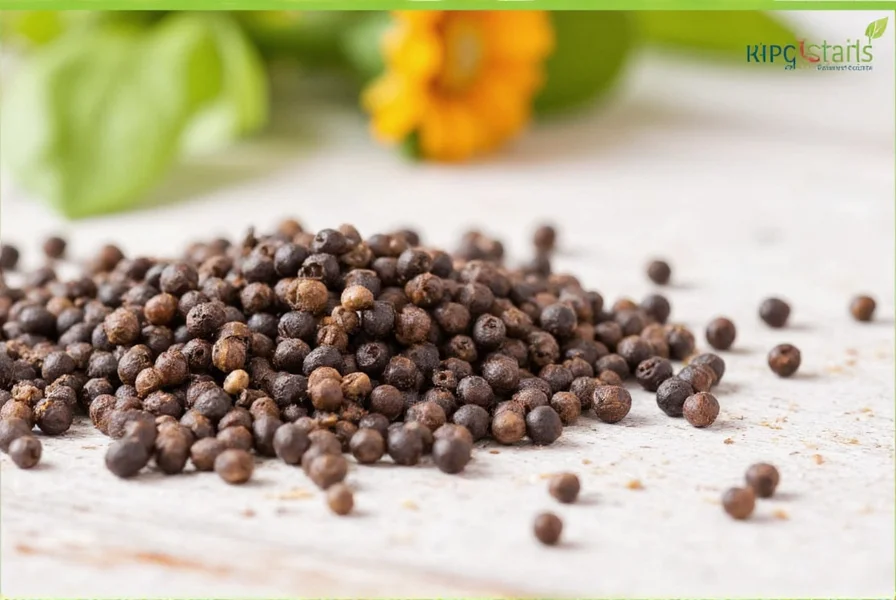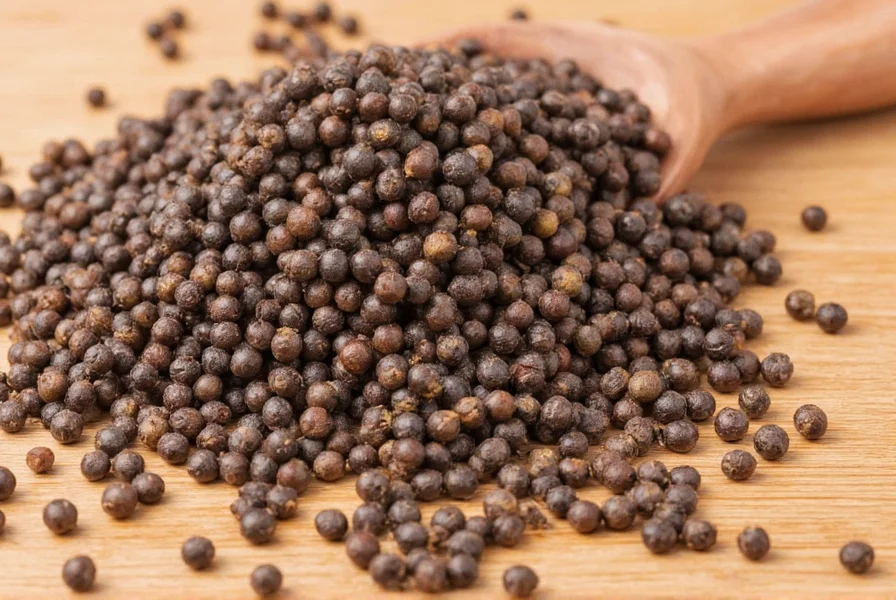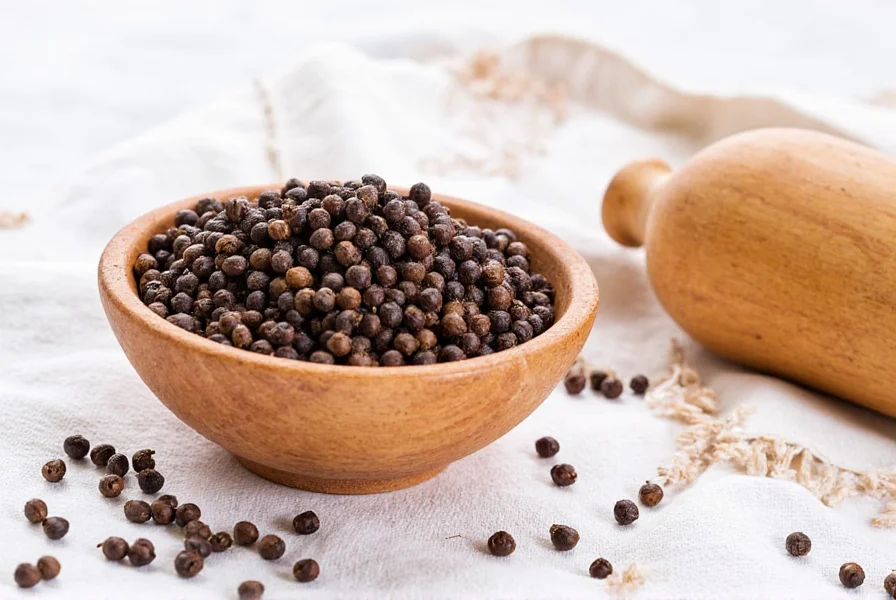Black pepper (Piper nigrum), one of the world's most widely used spices, contains potent bioactive compounds that contribute to its health-promoting properties. The key component responsible for most benefits is piperine, which makes up about 5-10% of black pepper by weight and gives it that distinctive pungent flavor.
The Science Behind Black Pepper's Health Benefits
Understanding black pepper piperine antioxidant properties requires examining how this compound interacts with biological systems. Piperine demonstrates significant free radical scavenging ability in laboratory studies, helping protect cells from oxidative damage that contributes to chronic diseases and aging.
One of the most well-documented effects is black pepper's ability to enhance nutrient bioavailability. Research published in Planta Medica found that just 20mg of piperine increased curcumin absorption from turmeric by an astonishing 2,000%. This makes the black pepper and turmeric combination benefits particularly valuable for maximizing the health effects of certain nutrients.

Key Health Benefits Supported by Research
| Benefit | Scientific Evidence | Practical Application |
|---|---|---|
| Nutrient Absorption | Multiple studies show 30-200% increased absorption of selenium, beta-carotene, and B vitamins | Add to meals containing fat-soluble vitamins and minerals |
| Anti-inflammatory Effects | Animal studies demonstrate reduced inflammatory markers at dietary-relevant doses | Regular culinary use may support long-term inflammation management |
| Digestive Support | Research shows increased digestive enzyme secretion and gut motility | Consuming with meals aids natural digestion processes |
Digestive Health and Black Pepper
When exploring is black pepper good for digestion, research indicates positive effects. Black pepper stimulates hydrochloric acid production in the stomach, which improves protein breakdown and nutrient assimilation. A study in the Journal of Ayurveda and Integrative Medicine found that black pepper extract significantly increased digestive enzyme activity in test subjects.
Unlike some digestive aids that provide temporary relief, black pepper works with your body's natural processes. The health benefits of black pepper consumption for digestion come from regular, moderate use rather than therapeutic doses.
Practical Ways to Maximize Benefits
To experience the black pepper anti-inflammatory benefits and other advantages, consider these evidence-based approaches:
- Pair with turmeric: The combination creates a powerful synergy for inflammation management
- Use freshly ground: Whole peppercorns retain piperine better than pre-ground pepper
- Include in fat-containing meals: Piperine is fat-soluble, so consuming with healthy fats improves absorption
- Moderate amounts: 1/4 to 1/2 teaspoon daily provides benefits without potential digestive irritation
Research in the European Journal of Nutrition suggests that the scientific evidence for black pepper health effects is strongest when it's consumed as part of whole foods rather than isolated supplements. The complex matrix of compounds in whole black pepper appears to work synergistically.

Important Considerations
While black pepper offers numerous benefits, it's essential to maintain perspective. Most research has been conducted in laboratory settings or with concentrated piperine extracts, not typical culinary amounts. The how black pepper improves nutrient absorption mechanism works best with certain nutrients but doesn't magically enhance all foods equally.
People with gastrointestinal conditions like ulcers or GERD should consult healthcare providers before significantly increasing black pepper intake, as it may irritate sensitive digestive tracts. Pregnant women should also moderate consumption, as extremely high doses haven't been thoroughly studied for safety during pregnancy.
Black pepper shouldn't be viewed as a standalone solution for health issues. Its benefits are best realized as part of a diverse, plant-rich diet that includes various spices and whole foods.
Conclusion
Black pepper's reputation as "the king of spices" extends beyond culinary use to legitimate health benefits supported by growing scientific evidence. The research on black pepper is good for health demonstrates particular value for nutrient absorption, antioxidant protection, and digestive support when used appropriately in daily cooking.
By understanding both the potential and limitations of black pepper's health properties, you can make informed decisions about incorporating this ancient spice into your modern diet. The key is consistent, moderate use as part of an overall balanced eating pattern rather than expecting dramatic effects from occasional heavy consumption.
Frequently Asked Questions
How much black pepper should I consume daily for health benefits?
For general health benefits, 1/4 to 1/2 teaspoon of freshly ground black pepper daily provides sufficient piperine without potential digestive irritation. This amount delivers approximately 5-20mg of piperine, which research shows enhances nutrient absorption without adverse effects for most people.
Does black pepper really help absorb turmeric better?
Yes, scientific studies confirm this synergy. Research published in Planta Medica found that adding just 20mg of piperine (about 1/20th of a teaspoon) to curcumin increased its bioavailability by 2,000%. This is why traditional recipes often combine black pepper with turmeric, and why many quality turmeric supplements include piperine.
Can black pepper help with weight management?
Some preliminary research suggests piperine may support metabolic health by influencing fat cell formation and thermogenesis. However, human studies are limited, and any effects would be modest. Black pepper shouldn't be considered a weight loss solution, but its digestive benefits may support overall metabolic health as part of a balanced diet.
Is there a difference between black pepper and white pepper for health benefits?
Black pepper generally offers greater health benefits than white pepper. The outer layer of black peppercorns contains higher concentrations of piperine and other beneficial compounds. White pepper, which has had this outer layer removed, contains less piperine and fewer antioxidants. For maximum health benefits, black pepper is preferable.











 浙公网安备
33010002000092号
浙公网安备
33010002000092号 浙B2-20120091-4
浙B2-20120091-4